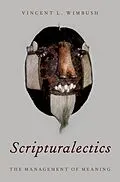In this book ,Vincent Wimbush seeks to problematize what we call "scriptures," a word first used to refer simply to "things written," the registration of basic information. In the modern world the word came to be associated almost exclusively with the center- and power-defining "sacred" texts of "world religions." Wimbush argues that this narrowing of the valence of the term was a decisive development for western culture. His purpose is to reconsider the initially broad and politically charged use of the term. "Scriptures" are excavated not merely as texts to be read but understood as discourse: as mimetic rituals and practices, as ideologically-charged orientations to and prescribed behaviors in the world, as structures of relationships and social formations, as forms of communication. Wimbush is naming and constructing a new transdisciplinary critical project, which uses the historical and modern experiences of the Black Atlantic as resources for framing, categorization, and analysis. Using Chinua Achebe's novel Things Fall Apart as a touchstone, each chapter offers a close reading and analysis of a representative moment in the formation of the Black Atlantic, regarded as part of a history of modern human consciousness and conscientization. Such a history, Wimbush says, is reflected in the major turns in what he calls scripturalectics, part of the construction of the modern world, defined as efforts to manage or control knowledge and meaning.
Autorentext
Vincent L. Wimbush is the former president of the Society of Biblical Literature and the founding director of The Institute for Signifying Scriptures. He is the author or editor of several books, most recently Scripturalizing the Human: The Written as the Political and Refractions of the Scriptural: Critical Orientation as Transgression.
Zusammenfassung
In this book ,Vincent Wimbush seeks to problematize what we call "e;scriptures,"e; a word first used to refer simply to "e;things written,"e; the registration of basic information. In the modern world the word came to be associated almost exclusively with the center- and power-defining "e;sacred"e; texts of "e;world religions."e; Wimbush argues that this narrowing of the valence of the term was a decisive development for western culture. His purpose is to reconsider the initially broad and politically charged use of the term. "e;Scriptures"e; are excavated not merely as texts to be read but understood as discourse: as mimetic rituals and practices, as ideologically-charged orientations to and prescribed behaviors in the world, as structures of relationships and social formations, as forms of communication. Wimbush is naming and constructing a new transdisciplinary critical project, which uses the historical and modern experiences of the Black Atlantic as resources for framing, categorization, and analysis. Using Chinua Achebe's novel Things Fall Apart as a touchstone, each chapter offers a close reading and analysis of a representative moment in the formation of the Black Atlantic, regarded as part of a history of modern human consciousness and conscientization. Such a history, Wimbush says, is reflected in the major turns in what he calls scripturalectics, part of the construction of the modern world, defined as efforts to manage or control knowledge and meaning.
Inhalt
Preface Introduction: Scripturalectics as Turns in the Human Quest for Meaning I. "Aru Oyim De De De Dei!": Mask-ing Meaning Ii. "Pacification of the Primitive Tribes": Meaning as White Savagery Iii. "We Have Fallen Apart": The Rupture of Meaning Summary Conclusion: The End of Scriptures, the Beginning of Scripturalectics
